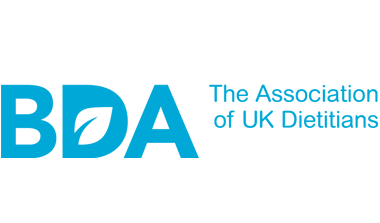What Is 'Healthy Eating'?
Healthy DietHealthy eating is about having a balance of different foods to provide all the nutrients your body needs for healthy living and to reduce the risk of disease. Healthy eating does not have to be boring or difficult, it is about enjoying your food, whilst being mindful about what you eat.
The Eatwell Guide shows the ideal proportion of each of the different food groups to include in your diet. These include carbohydrates, fruit and vegetables, protein, dairy (and non-dairy alternatives) and unsaturated fats and oils. Foods high in fat, sugar and salt sit outside of this but play a small role in the enjoyment of a balanced diet. Cutting out one of the main food groups, such as carbohydrates can cause dietary imbalance. When the Eatwell Guide is followed, your body will receive the nutrients it needs for optimal health.
Carbohydrates
Carbohydrate (starch) is the body’s main energy (fuel) source. Starch is broken down to produce glucose (a type of sugar) which is used by the body for energy. Starchy foods are important and should make up about a third of all the food that we eat. You do not have to avoid or restrict them, but eating too many starchy foods, or adding a lot of fat, may lead to weight gain, especially if physical activity is low.
Starchy foods include cereals (wheat, oats, barley, millet, rye), bread, potatoes, yams, cassava, rice and pasta. Wholegrain options are healthier choices due to their nutrient content and fibre.
Fibre-rich foods help the gut to function well and have many other health benefits. Studies have shown that people who are overweight or living with obesity tend to lose weight if they include plenty of high fibre, starchy carbohydrates in their diets.
Fruit and vegetables
Fruit and vegetables are the body’s main source of vitamins, minerals and antioxidants (chemicals which reduce damage to the body). They are high in fibre and low in calories.
The current UK guidance recommends everyone eats at least five portions of different coloured fruit and vegetables per day; these can be dried, frozen, tinned or fresh. One portion of pulses e.g. baked beans, lentils, chickpeas, soy beans also count.
Protein
Protein is the body’s main fuel for building muscle and strength. It plays a vital role in many bodily functions; supporting the immune system and maintaining bone health. Meat, poultry including chicken and turkey, fish, eggs and dairy are rich sources of dietary protein, zinc and B vitamins. Meat, poultry and fish also provide the body with a form of iron (haem), which is the easiest form to absorb.
Red meat (beef, lamb/mutton, pork, venison, goat) and processed meats (bacon, sausages, smoked/cured/canned meats) contain higher amounts of saturated fat than poultry and fish and are known to be a risk factor for cancer. Processed meat should ideally be avoided or limited. Pulses are a good meat alternative and are also great for sustainability. Nuts, tofu, tempeh and seeds are good sources too.
Dairy
Dairy products are the body’s main source of calcium, which is necessary for the growth, development and maintenance of healthy bones and teeth. Dairy products and alternatives are also a source of protein. Dairy alternatives should be fortified with calcium, vitamin D – and if following a vegan diet, iodine (Find out more: Vegetarian, Vegan and Plant-based diets).
Butter, cream and ice-cream do not provide the same health benefits. Milk, milk-based sauces, yoghurts and cheese can have a high saturated fat content and therefore current UK guidance recommends choosing lower-fat options, these are particularly important if you have high cholesterol, heart disease or wish to lose weight. Some studies suggest that dairy foods are neutral for heart health but as yet there is not enough evidence to advise low or full-fat dairy.
Fats
Dietary fats have many essential functions in the body but are more energy-dense than carbohydrates and protein. All fats have the same calorie content so choose healthier unsaturated fats wherever possible.
Saturated fats
Saturated fats can increase the level of a certain type of cholesterol (‘LDL’), which can build up over time in arteries and blood vessels, increasing the risk of heart attack or stroke.
Saturated fats are often found in high levels in meat (with visible fat), butter, cheese, cream and in many processed foods, such as sausages, burgers, cakes, biscuits, pastries and desserts. Trans fats are produced in the manufacturing process to increase food shelf-life and stability.
Unsaturated fats
Unsaturated oils and spreads are the healthiest choices of dietary fat. These are found in vegetable oils, including olive, rapeseed and sunflower, nuts and seeds (including their oils) and oily fish. All contain ‘HDL’ cholesterol, which can remove the potentially harmful ‘LDL’ cholesterol (found in saturated fats) from the body.
Essential Fatty Acids (EFAs)
EFAs (such as omega-3) are essential to include in our diets because our bodies cannot make them. EFAs are found mainly in the flesh and skin of oily fish (e.g. salmon, sardines, mackerel).
EFAs can also be found in some plant oils such as flaxseed, rapeseed and soya but there is not as much in these compared to oily fish.
Sugar
Sugar is a type of carbohydrate. Like starch, it breaks down into glucose, to provide energy for the body. ‘Free’ sugars are often added to foods when being manufactured and include refined sugars such as sucrose (table sugar). Many of the free sugars that we consume are in sugary drinks. This kind of sugar is also found naturally in unsweetened fruit juices, in syrups and honey.
Excess consumption of free sugars is linked to the risk of obesity, type 2 diabetes and tooth decay. The natural sugars found in milk and in whole fruits and vegetables are not free sugars and do not need to be restricted in the same way.
Fatty and/or sugary snacks and drinks generally have little nutritional value apart from providing calories. They should be eaten in small amounts and less often.
Salt
High levels of salt in the diet can increase blood pressure. Most of the salt that we eat is added to processed foods. Some processed foods, such as bread, wholegrain breakfast cereals, cheese and yoghurt, provide health benefits. Cutting back on ultra-processed foods like canned soups, sauces, ready meals and sausages or cured/smoked meats, will help to reduce your intake.
Top tips
- Eat a variety of foods in the recommended proportions
- When choosing a vegetarian or vegan diet, ensure nutrients are replaced with fortified foods
- Aim for five fruits and vegetables a day - more will give you additional health benefits
- Try to replace some meat with pulses if eating more than 70g per day or 500g per week
- Limit saturated fats, salt and sugar - look at food labels.
This Food Fact Sheet provides the basic components of healthy eating for the general adult population. Anyone with specific health conditions should consult their GP or a health professional.







































































